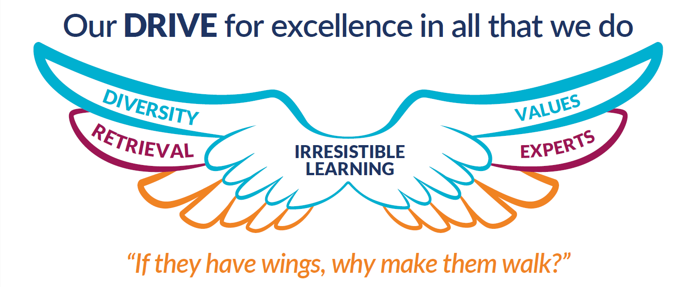Waddington All Saints Academy has approximately 375 pupils on roll, serving a mixed catchment, half from the local villages and the other half from service families, as a result military life remains highly significant to our context and offer. We work to sustain strong links with the local community and RAF Waddington.
The contextual implications of the proportion of pupils from service families includes higher than average mobility, with pupils joining from the education systems of other areas and countries and pupils often leave or join mid-year. Our curriculum is based upon the National Curriculum, because this gives pupils the greatest chance of curriculum cohesion and progression when moving between schools. Mobility has the potential to impact upon all pupils at our academy, so our curriculum and systems also support pupils to develop character and resilience, to ensure that their educational chances and success will not be limited or negatively impacted upon by challenges and change. Consequently, they are well prepared for the next stages of their learning and education.
While there is cultural diversity within our academy, 92% of pupils are from a White British Background, and for 3% of pupils, English is not their first language. To ensure that our pupils develop a deep awareness and understanding of diversity and culture, these are woven through all aspects of our curriculum offer. In addition, we currently have 17% of pupils with SEND, which includes 13 pupils with an EHCP and 13% of our pupils are in receipt of Pupil Premium. To ensure all of our pupils are able to reach their potential we ensure adaptations to the curriculum and learning environment are effective in supporting all pupils to be able to be access learning and make progress.

At All Saints Academy, our curriculum has been carefully constructed to ensure our children engage in an inspiring and rigorous journey of connectedness, which cultivates a deep sense of wonder about the world and a fundamental desire to learn and keep learning; enabling, inspiring and motivating all children, to grow and develop as individuals and a collective.
To support us in this, we have designed a carefully sequenced, progressive and coherent curriculum which is relevant to our children’s’ lives. It enables them to develop deep, powerful knowledge and build more and more connections over time, so that they are able to become experts. The key ideas and concept are carefully interleaved, so that pupil are able to retrieve and then build upon key knowledge, this approach leads to change in the long term memory, enabling pupils to think in more powerful ways and enable every individual to reach their full potential, over the time they spend with us.
This approach helps our children to develop a strong understanding of the world, think critically about deeper issues and develop a strong awareness of the impact of their actions, enabling them to become confident and capable global citizens, now and in the future.
We want to empower children to be prepared to take risks, learn with growing independence and develop skills that enable them to fly high academically, socially and physically.
Our broad and balanced curriculum has been designed to be real and relevant to our pupils. Enriching experiences, inspirational days, workshops, trips and visitors are planned, to bring the learning to life and make it truly irresistible, ensuring all pupil, particularly those from disadvantage backgrounds thrive during their time here.
| D | An inclusive curriculum, which celebrates DIVERSITY, teaches respect, tolerance and equality to ensure pupils develop a strong moral compass. |
| R | A curriculum, which creates life-long learners, through RETREIVAL, enabling pupils to make links and remember more. |
| I | An IRRESISTIBLE curriculum that provides opportunities for pupils to use their imagination to create and innovate. |
| V | A curriculum which develops an understanding of right and wrong through cultural capital, teaching pupils to be resilient and building the VALUES to become caring, well-rounded citizens. |
| E | A challenging curriculum that promotes a love for reading, encouraging independence and critical thinking; enabling pupils to articulate their learning and work as EXPERTS. |